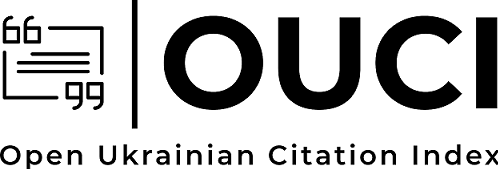Mission of the Roman Catholic Order of the Holy Trinity: Content, events of history, modernization (the end of 12th — the beginning of 21st century)
DOI:
https://doi.org/10.28925/2524-0757.2024.113Keywords:
freedom, Roman Catholic Church, Order of the Most Holy Trinity, trinitarians, redemption from captivity, charismaAbstract
Freedom as a universal category of human existence is the fundamental principle of becoming and modern development of European civilized matrix, and also one of the markers of Ukrainian mentality and identity. Its interpretations are closely related, in particular, to Christianity, because freedom is decoded as a gift from God, in return, lack of freedom is unconditional evil and spiritual slavery. In the history of the Roman Catholic Church one of the examples of struggle for human freedom, in particular, its liberation from captivity, is the activity of the order of Holy Trinity (Trinitarians). In 2023, 830 years have passed since the foundation of the order, and 825 years passed from its acquisition of the official status of the monastic community. Exactly the importance of character of the activity of this Roman Catholic order and a number of jubilee dates, related to it, determine the actuality of the chosen topic. The purpose of the article is to clarify the uniqueness of the spiritual calling and modern transformation of the direction of activity of the Roman Catholic order of Holy Trinity (Trinitarians) during the end of the 12th — beginning of the 21st century. The article is an attempt analytical generalization of factual and source material from history, direction and effectiveness of activity of the Roman Catholic order of the Trinitarians. The article outlines the circumstances and factors of the establishment of the Roman Catholic Order of Holy Trinity (Trinitarians), and also leading links of its missionary activity — redemption of Christians from captivity, medical assistance, charity. It was investigated, that the public demand for the service of monks- trinitarians on that time caused a dynamic spread, and finally the establishment of their community in “the whole Christian world”, in particular in Europe, in Asia, in Africa and in America. There is a number of factors, that led to the crisis in its environment and corresponding transformations of the organizational structure. It is analyzed the current situation of Trinitarians in particular the staff, number, as well as the geography of the chains of its cells. It is traced the process of revise by the members of the order an established view of the main purpose of the activity. Nowadays it is spiritual “redemption” of captives of various forms of modern enslavement and addiction. It is emphasized, that in view of modern global crises, and accordingly, permanent threats to human safety, the activity of the order of the Trinitarians continues to be relevant.
Downloads
References
Havrylyshyn, P. (2012). Chomu Tserkva spokonviku dbaie pro svobodu liudyny? Bo tse naitsinnishyi dar. Orden Trynitariiv [Why has the church been concerned about human freedom for centuries? Because it is the most valuable gift. The Trinitarian Order]. [in Ukrainian]. https://prison-pastoral.blogspot.com/2012/07/blog-post.html
Fitych, T. (2014). Impuls do walki z nowymi formami niewolnictwa i osobowej degradacji. 800. rocznica śmierci założyciela zakonu trynitarzy — św. Jana z Mathy (1150–1213) [Impetus to fight new forms of slavery and personal degradation. 800th anniversary of the death of the founder of the Trinitarian Order — St. John of Mafa (1150–1213)]. Studia Wrocławskie, 16, 106–125 [in Polish].
Kaczyński, Ł. (2018). Trynitarze. Odpowiedź na różne niewole świata [Trinitarians. The answer to the various unfreedoms of the world]. [in Polish]. https://www.ekai.pl/trynitarze-odpowiedz-na-rozne-niewole-swiata/
Kmet, V. (2015). Pro 517 khrystyian, vriatovanykh z turetskoho polonu, abo monakhy-trynitarii u Lvovi (video) [About 517 Christians Rescued from Turkish Captivity or Trinitarian Monks in Lviv (video)]. [in Ukrainian].
Kravchenko, O., & Matros, O. (Comps.). (2017). Istoriia sotsialnoi roboty [History of Social Work]. Uman [in Ukrainian].
Mogilevskiy, I. (2014). Myloserdie v period rannego srednevekovia [Charity in the Early Middle Ages]. History Illustrated, 10, 80–89 [in Russian].
Wagner, M. (2012). Wykup jeńcόw polskich z niewoli tureckiej i tatarskiej w końcu XVII wieku [Ransom of Polish Youths from Turkish and Tatar Captivity in the Late Seventeenth Century]. Ukrainska Orientalistika, 6, 29–35 [in Polish].
Witko, A. (1999). Trynitarze [Trinitarians]. Kraków [in Polish].
Witko, A. (2000). Gloria Tibi Trinitas et captivis libertas: del pasado y del presente de la Orden Trinitaria. Z przeszłości i teraźniejszości Zakonu Trynitarskiego [Gloria Tibi Trinitas et captivis libertas: The past and present of the Trinitarian Order]. [tł. Danuta Kucała]. Kraków [in Spanish & Polish].
Witko, A. (2002). Sztuka w służbie Zakonu Trójcy Świętej w siedemnastym i osiemnastym stuleciu [Art in the service of the Order of the Holy Trinity in the seventeenth and eighteenth centuries]. (Ed.) Joanna Daranowska-Łukaszewska, Warszawa [in Polish].
Witko, A. (2007). The Beginnings of the Order of the Most Holy Trinity and Its Rule. Folia Historica Cracoviensia, 13, 135–144 [in English].
Wołyniak (1909). Wspomnienie o Trynitarzach na Wołyniu, Podolu i Ukrainie [Memories of the Trinitarians in Volyn, Podillia, and Ukraine]. Krakόw [in Polish].
Published
How to Cite
Issue
Section
License
Copyright (c) 2024 Руслана Шеретюк, Надія Стоколос

This work is licensed under a Creative Commons Attribution-NonCommercial-ShareAlike 4.0 International License.
Authors who publish in this journal retain the right of authorship of the work and give to the journal right of first publication of this work under the conditions of Creative Commons: Attribution-NonCommercial-ShareAlike 4.0 International (CC BY-NC-SA 4.0), which allows others freely distribute the work published with reference to the authors of the original work and the first publication of this magazine.














